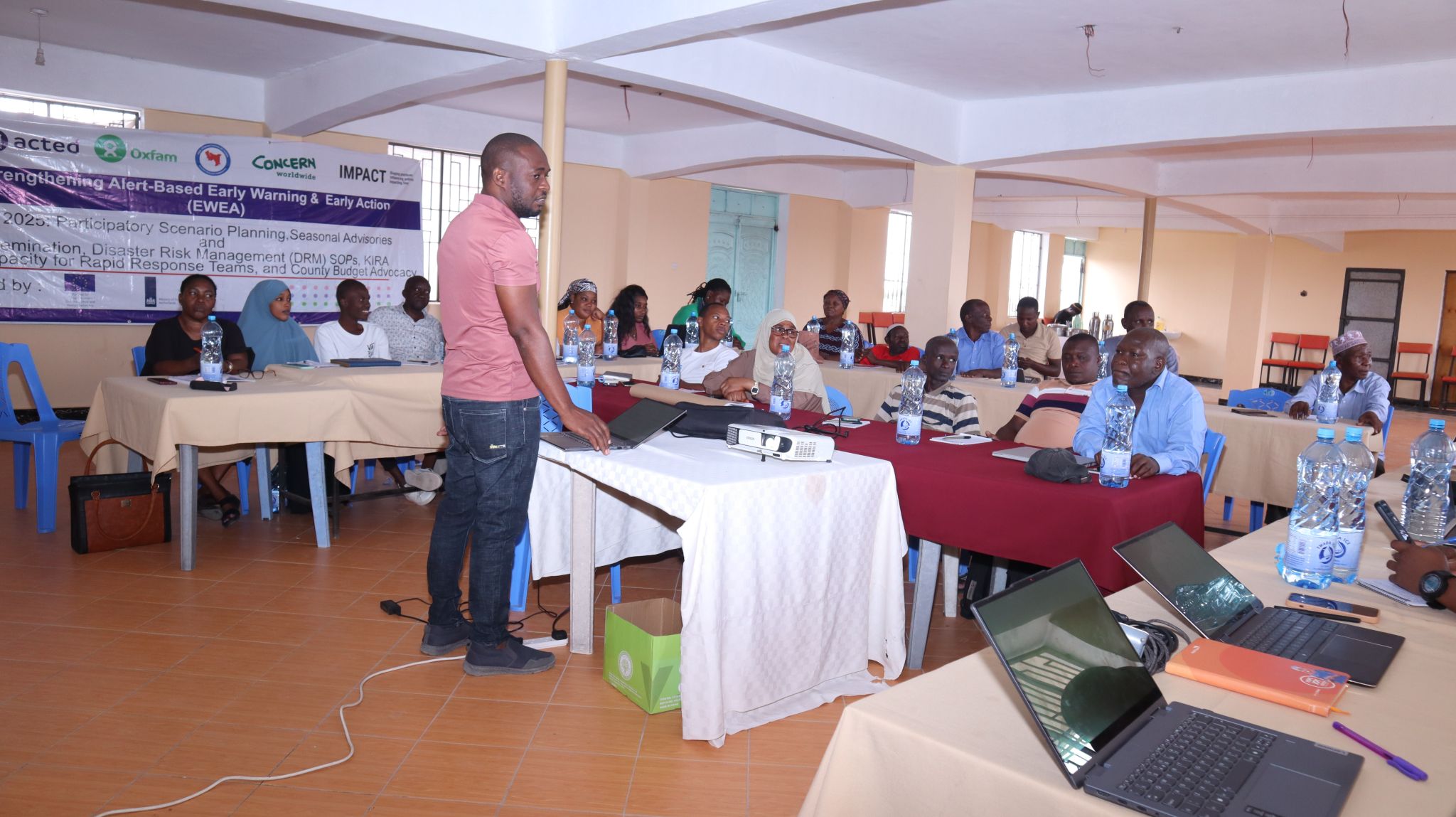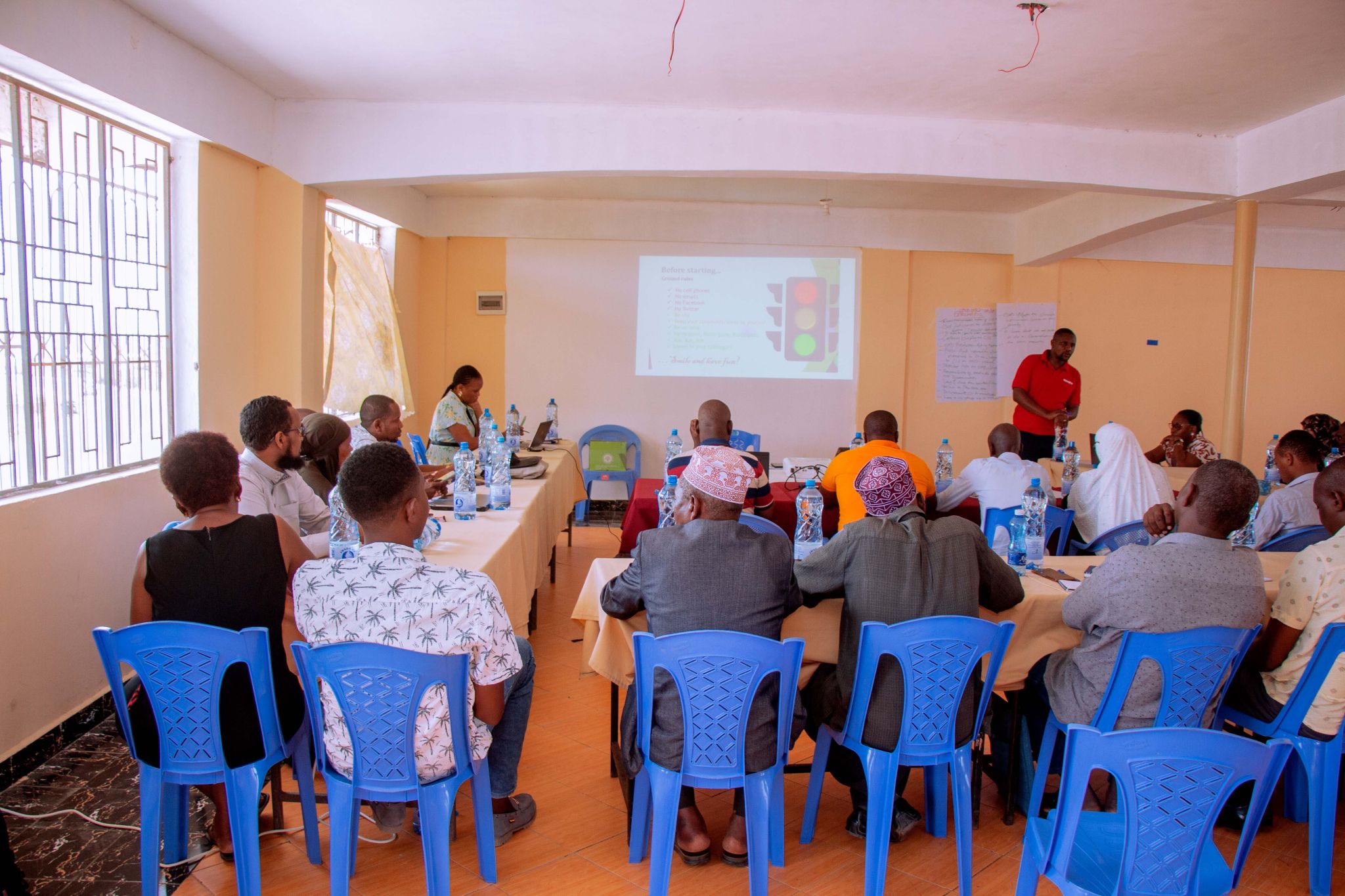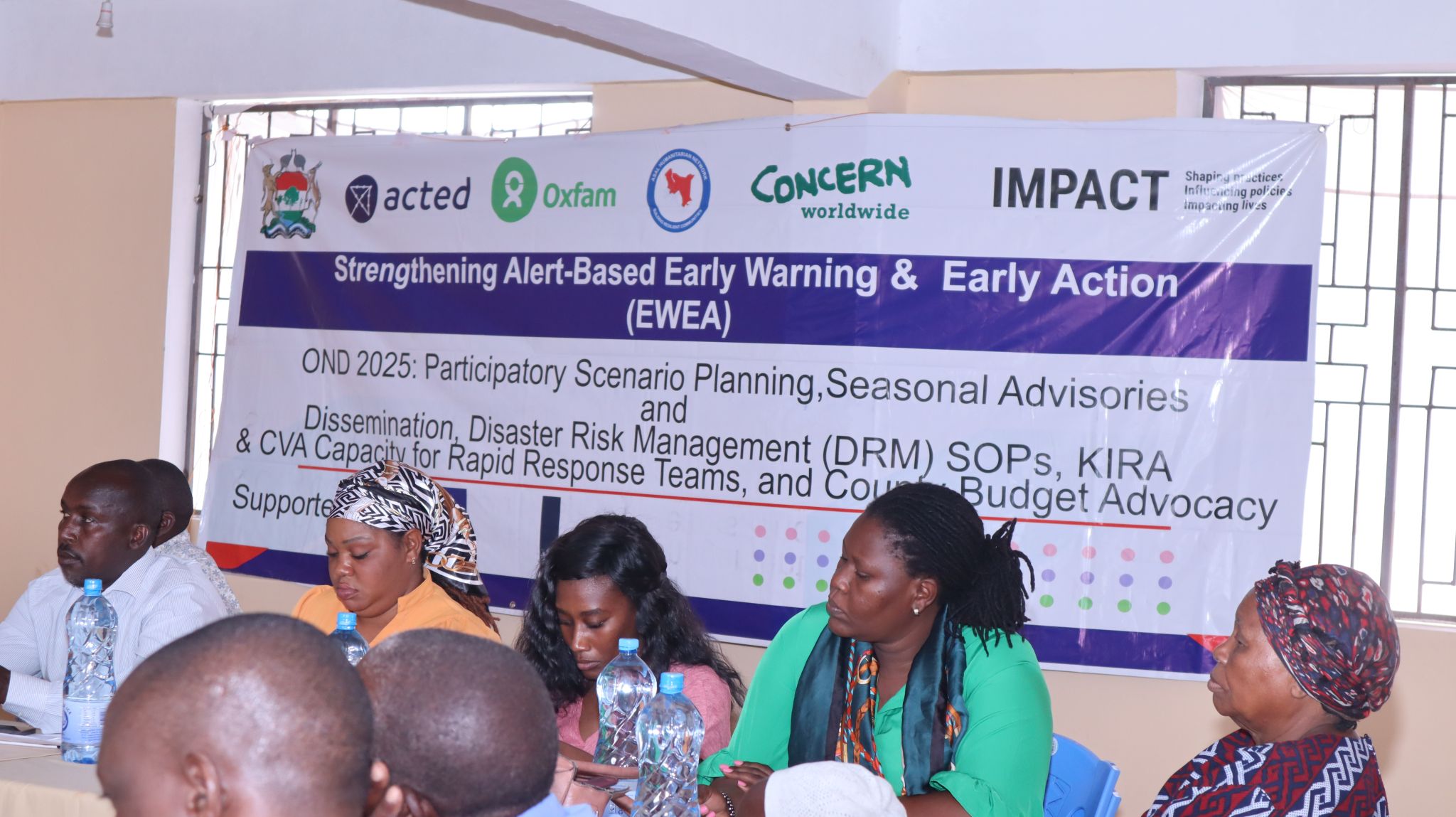The ASAL Humanitarian Network (AHN), in collaboration with the Kenya Cash Consortium (KCC) under the ECHO HIP 2025 initiative, has launched Participatory Scenario Planning (PSP) workshops in Garissa and Tana River counties.
These workshops are bringing together county governments, the National Drought Management Authority (NDMA), the Kenya Meteorological Department (KMD), the Kenya Red Cross Society, the World Food Programme (WFP), and other partners to co-produce climate advisories and strengthen anticipatory action.

The PSP approach enables communities, technical experts, and government agencies to collaborate and integrate scientific forecasts with indigenous knowledge.
This fusion is producing locally tailored, practical advisories that are more trusted and actionable.
The goal is to ensure that early warning information translates into concrete preparedness steps before hazards such as droughts or floods escalate into crises.
Over the course of three days, participants in Tana River assessed seasonal forecasts, shared indigenous climate indicators, and co-developed sectoral response plans.
Day Two focused on identifying sector-specific strategies for agriculture, livestock, human health, and water, while Day Three consolidated these findings into actionable advisories and outlined dissemination strategies.

Local media, including radio talk shows, and digital platforms such as WhatsApp groups, will play a central role in delivering these advisories quickly and widely.
This ensures that farmers, pastoralists, and vulnerable households receive timely, understandable, and practical information to guide their decisions.
A key outcome of the workshops is the development of Standard Operating Procedures (SOPs) for alert-based financing.
These SOPs will enable governments and partners to respond predictably and rapidly when early warning signs emerge, thereby reducing losses and safeguarding livelihoods in drought-prone regions.
By anchoring the process within the Ending Drought Emergencies (EDE) Phase II framework, the PSP workshops demonstrate how coordinated, locally led approaches can enhance resilience.
They also emphasise the importance of combining traditional wisdom with modern science to create advisories that resonate with local communities.
For ASAL counties, which have long been vulnerable to climate shocks, this integration marks a critical step forward in building systems that are both people-centred and evidence-based.
The PSP model is demonstrating that when communities and institutions collaborate, the result is stronger preparedness, reduced losses, and greater resilience in the face of increasingly unpredictable weather.

